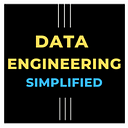Snowflake SnowPro Certification Preparation Guide
Check out my courses in Udemy. Popular course include building utility using Snowpark Python API to ingest CSV data as well as JSON data automatically without writing any DDL/DML statement and save 95% of manual effort.
The Snowflake SnowPro Core Certification (COF-C02) validates an individual’s ability to implement and migrate to Snowflake using specific core expertise. A SnowPro Core Certified individual understands the Snowflake Cloud Data Platform in depth and has the knowledge required to design, develop, and manage secure, scalable Snowflake solutions to drive business objectives.
The Snowflake SnowPro Core Certification (COF-C02) is intended for people who want to demonstrate their understanding of the Snowflake Cloud Data Platform. The candidate is well-versed in the following topics:
- Data Loading and Transformation in Snowflake.
- Virtual Warehouse Performance and Concurrency
- DDL and DML Queries
- Using Semi-Structured and Unstructured Data
- Cloning and Time Travel
- Data Sharing
- Snowflake Account Structure and Management
SnowPro Certification Exam Format
COF-C02 Exam Domain Breakdown
This exam guide contains information about test domains, weightings, and objectives. It is not an exhaustive list of everything that will be covered on this exam. The main content domains and their weighting ranges are listed in the table below.
1.0: Snowflake Platform Features and Architecture
Outline key features of the Snowflake Cloud Data Platform
- Elastic Storage
- Elastic Compute
- Snowflake’s three distinct layers
- Data Cloud/ Data Exchange/ Partner Network
- Cloud partner categories
Outline key Snowflake tools and user interfaces.
- Snowflake User Interfaces (UI)
- Snowsight
- Snowflake connectors
- Snowflake drivers
- SQL scripting
- Snowpark
Outline Snowflake’s catalog and objects.
- Databases
- Schemas
- Tables Types
- View Types
- Data types
- User-Defined Functions (UDFs) and User Defined Table Functions (UDTFs)
- Stored Procedures
- Streams
- Tasks
- Pipes
- Shares
- Sequences
Outline Snowflake storage concepts.
- Micro partitions
- Types of column metadata clustering
- Data Storage Monitoring
- Search Optimization Service
2.0: Account Access and Security
Outline compute principles.
- Network security and policies
- Multi-Factor Authentication (MFA)
- Federated authentication
- Single Sign-On (SSO)
Define the entities and roles that are used in Snowflake.
- Outline how privileges can be granted and revoked
- Explain role hierarchy and privilege inheritance
Outline data governance capabilities in Snowflake
- Accounts
- Organizations
- Databases
- Secure views
- Information schemas
- Access history and read support
3.0: Performance Concepts
Explain the use of the Query Profile
- Explain plans
- Data spilling
- Use of the data cache
- Micro-partition pruning
- Query history
Explain virtual warehouse configurations.
- Multi-clustering
- Warehouse sizing
- Warehouse settings and access
Outline virtual warehouse performance tools
- Monitoring warehouse loads
- Query performance
- Scaling up compared to scaling out
- Resource monitors
Optimize query performance
- Describe the use of materialized views
- Use of specific SELECT commands
4.0: Data Loading and Unloading
Define concepts and best practices that should be considered when loading data
- Stages and stage types
- File size
- File formats
- Folder structures
- Adhoc/bulk loading using the Snowflake UI
Outline different commands used to load data and when they should be used
- CREATE PIPE
- COPY INTO
- GET
- INSERT/INSERT OVERWRITE
- PUT
- STREAM
- TASK
- VALIDATE
Define concepts and best practices that should be considered when unloading data
- File formats
- Empty strings and NULL values
- Unloading to a single file
- Unloading relational tables
Outline the different commands used to unload data and when they should be used
- LIST
- COPY INTO
- CREATE FILE FORMAT
- CREATE FILE FORMAT … CLONE
- ALTER FILE FORMAT
- DROP FILE FORMAT
- DESCRIBE FILE FORMAT
- SHOW FILE FORMAT
5.0: Data Transformation
Explain how to work with standard data.
- Estimating functions
- Sampling
- Supported function types
- User-Defined Functions (UDFs) and stored procedures
Explain how to work with semi-structured data.
- Supported file formats, data types, and sizes
- VARIANT column
- Flattening the nested structure
Explain how to work with unstructured data.
- Define and use directory tables
- SQL file functions
- Outline the purpose of User-Defined Functions (UDFs) for data analysis
6.0: Data Protection and Data Sharing
Outline Continuous Data Protection with Snowflake.
- Time Travel
- Fail-safe
- Data Encryption
- Cloning
- Replication
Outline Snowflake data sharing capabilities.
- Account types
- Data Marketplace and Data Exchange
- Private data exchange
- Access control options
- Shares
Snowflake SnowPro Core Certification Sample Questions
SnowPro Certification Preparation Strategy
This video will help you to find answer for following questions
- What resources can I use to study for the SnowPro Core Exam?
- How should I approach studying Snowflake’s content for the exam?
- What topics should I prfioritize while studying?
- How can I effectively practice hands-on exercises for the exam?
- How much time should I dedicate to preparing for the exam?
- What types of questions can I expect in the exam?
- How can I simulate real exam conditions during my preparation?
- How can I simulate real exam conditions during my preparation?
- Last-minute tips for the day of the exam?
